This is a Logos Bible Software Review of Logos 7. I include the positives and the negatives of Logos Bible Software, and explain why I think that despite its minor flaws, it is still the best Bible Study software package available today.
My History with Bible Study Software
I have been using Bible Study Software for over 20 years. The very first piece of Bible study software I used was the first version of QuickVerse, which ran on Windows 95 and came on a single 3.5” Floppy Disk. I think I still have that disk around somewhere… I loved QuickVerse, all the way up until 2010 when they became greedy and blocked access to the books you had previously bought unless you paid for a software upgrade.
Since that time, I have been on the hunt for good Bible Study software. I have used WordSearch, eSword, BibleWorks, and a few others. Frankly, despite how much I love Logos Bible Software, BibleWorks is still my Bible Software of choice when it comes to pure original language resource. Nothing beats BibleWorks for studying Greek and Hebrew. Nothing. Having said that, BibleWorks is extremely difficult to use and Logos Bible Software is getting better all the time, so we will see if I still have this opinion in a few years …
But if you want to do anything other than original language research, Logos Bible Software is the best. And if you are trying to save money (and time), and you don’t want to buy (and learn) two different Bible study software packages, then go with Logos Bible Software since it also has good language tools while providing a vast library of other Bible study tools and reference works at the click of a button.
This Logos Bible Software review includes the positive and negative details about the software, and gets quite long, so if at any time you become convinced and want to buy a version of the software for yourself, know that you can use the code “RedeemingGod8” at checkout to get a 10% discount on your order. I’ll remind you again later, as well.
And yes, by way of full disclosure, if you use that discount code, Logos pays me a little bit of money as well when you use that discount code to purchase Logos Bible Software. But I don’t recommend Logos Bible Software simply because they give me a commission. I was recommending them long before our partnership, and I only recommend their Bible study software because I love it and use it almost every day. And the little bit of money I earn in commissions doesn’t go toward fancy vacations or cars, but is put 100% toward funding the mission work I do around the world.
So let’s get on with the this Logos Bible Software review. Let me begin with the 6 Negatives of Logos 7.
Logos Bible Software Review – Negative #1: Start Up Time
I am impatient. I, like you, live in a “Fast Food” world with “Instant Access” to everything. Therefore, even though I know it’s extremely shallow, the most frustrating thing for me with Logos Bible Software is its load time. Occasionally, after double-clicking the Logos icon on my desktop, it might take 2 or 3 minutes for the software to actually load and be ready to use. Then to make matters worse, it seems that more often than not, there is some sort of “Update” to the software or to one of my Logos Bible Software resources, and after this downloads, the software wants me to shut it down and restart it, which only means that I have to go through the load time all over again.
The way I work around this is to think ahead. If I think I am going to be using Logos Bible Software sometime in the next two hours during my study, I will just get it started right away. This way, it is ready and waiting when I need it.
Of course, once Logos Bible Software is actually up and running, it saves me a TON of time. I no longer have to find the right book on the shelf, find the right page, use the index, turn to the chapter, or anything like that. All I have to do is type my search term in the search box and … TA DA! … everything is right in front of me in a few seconds. So all in all, even though I get frustrated with the initial load time, over the years I have used Logos Bible Software, I have probably saved myself a few hundred hours of page turning. But this is turning into a positive, so we better move on …
In case you are curious how long it takes, here is a video of me starting Logos after purposefully not starting it up for a while:
Logos Bible Software Review – Negative #2: Cost
Logos is expensive. It’s hard to drop a couple hundred dollars (or a couple thousand) on a software package. Yeah, I get it.
But here’s the thing … I own roughly 3,000 books. Many of these books cost me upwards of $30 or $40, but most of them were probably in the $10-$20 range. So let’s just say that each book only cost me $15. This means that over the last 30 years of buying and reading books, I have spent at least $45,000 on books.
!!!!!!!!
That makes me sick just looking at it. Seriously. I didn’t realize it was that much until I just calculated it for this review. As I look at that number I’m a bit queasy. My wife and I live on a single income and we pinch our pennies to make ends meet. The fact that I have spent around $45,000 on books makes me wonder if it was all worth it. What else could I have spent that money on? Who else?
This is also why I almost stopped buying books over the past 7-8 years. I still buy a few each year, but not nearly as many as I used to buy. I now think that since I have more books than I can read in a lifetime, and since there might be better things to spend my money on than more books, I simply don’t need to buy many books any longer.
But if you have a smaller library, or if you are just starting out in building your theological library, than investing a bit of money is required and even necessary, and this is where Logos Bible Software comes in.
When you buy Logos Bible Software, you are not just buying software … you are buying a whole library of books at a screaming deal, and as icing on the cake, you get a state-of-the-art method of accessing and using those books. And these books aren’t just throwaway books that you find in the “Free” bin at church. No, the books included in all the Logos Bible Software packages are some of the best books money can buy for Bible study and Christian ministry. But we’ll talk more about the books in Logos Bible Software later under the “Positives” of this software … because it is a huge positive.
Logos Bible Software Review – Negative #3: Too Many Resources
In mentioning above all the books that come with Logos Bible Software, I realized that this could also be a negative with the package. Some people might think “There are too many books! I won’t use them all.”
And this might be true for you, in which case, the software might not be something you should purchase. If you are content to simply read your Bible and have a concordance and a one-volume Bible dictionary to help you understand some words and concepts, then it is true, Logos Bible Software has too many books, and you will likely not use them all, and so should not purchase this software.
But if you are planning on preaching, teaching, or writing regularly about Scripture, and if you need high quality, reliable, accurate, and trustworthy resources to help you in your research and study of the Bible, then Logos Bible Study software might be exactly what you need.
Look, I have over 3,000 books in my physical library. Over the past 30 years, I have used almost every single one of them for at least an hour or two. Many of them I use almost every week. But over the next 30 years (if the Lord allows it), I hope to use many of those books a lot more than I did in the past 30 years.
Regardless, do you know what I have discovered about books? You never really know which books you need until you find the solution to your question in one of the books you rarely consult, but finally picked up in a last-ditch effort for help on a troubling text. Then as you read, your mind is opened and a flash of insight jumps off the page as if it came from Jesus Himself. And when this happens, you look at the book in wonder and think, “Wow, I’ve never really enjoyed this book too much before, which is why it’s been mostly ignored. But I sure am glad I have it now. It just made my sermon come alive.”
So anyway, yes, Logos Bible Software has a lot books. But you never know which ones you might end up needing…
Logos Bible Software Review – Negative #4: It’s Hard to Use
Logos is initially hard to use. Not nearly as hard as BibleWorks, but it is hard to use. There is a learning curve.
Of course, do you remember the very first time you tried to use a cellphone? My wife just got her first cellphone last month. I kid you not. Here it is, 2016, and she has just started using a cell phone. She also has never used an ATM. Not once in her entire life. She doesn’t get along well with technology. Anyway … it is interesting to watch her try to use the cell phone and remember where everything is and how to make a call or send a text. But she is learning, and is getting faster. Pretty soon, she will be taking selfies and posting them on Instragram with the best of us. Well, probably not … but still, with a little time, patience, and practice, she is learning to use her cell phone.
The same is true with Logos Bible Software. It’s a little overwhelming to use at first, but with a little time, patience, and practice, you pick it up. Of course, imagine how overwhelming it would be if someone pointed you to a room full of thousands of books that were stacked in piles all over the place and said, “Now go study!” Yep. Overwhelming.
So while Logos Bible Software is overwhelming at first, you quickly understand where everything is and how everything works.
Best of all, there are excellent Logos Bible Software training videos to walk you through everything. They basically hold you by the hand and take you step by step through every aspect of Logos Bible Software. Pretty cool, huh?
If you want to master Logos in 30 days or less, I highly recommend their 30-day challenge.
Logos Bible Software Review – Negative #5: I like Paper Books more than Digital
I do like paperback books more than digital. I like the feel of the pages between my fingers. I like to easily underline key passages with a pen. I like to scribble in the margins. All of this is hard to do with a digital book.
Of course, I also have a love/hate relationship with paperback books. Remember those 3,000 books I own? In the last 17 years, my wife and I have moved 17 times. If each book only weighs 1.5 pounds, this means that my books weight 4,500 pounds. That’s 2.5 tons of books. If I have moved 2.5 tons of books 17 times, that’s over 42 tons of books, or 84,000 pounds!
Every time I packed them up into boxes, carried several hundred boxes of books to the U-Haul, and then unloaded and unpacked them at our new residence, I cursed my addiction to books. I always thought, “How nice would it be to have all these books on a single laptop computer which I can carry with one hand?”
I am also, as you can imagine, completely out of bookshelf space in my house. Right now, my bookshelves have double and triple rows of books on them. I put up shelves in the garage as well.
So as much as I love paperback books, I also see the benefit to digital books. After I retire from my job, my wife and I would love to travel and teach, connecting with people around the world that we have met online, encouraging each other in our walk with Jesus. This will clearly be impossible with even a single box of books, let alone several hundred. So if I want to study and write as I travel, I must move toward a digital library. Logos Bible Software will help me with that.
I know a missionary, by the way, whose entire library is with Logos Bible Software, and he wrote a best-selling books on the Gospel with the use of this library as he was shuttled around to various places of ministry in the back of a Jeep. This is how more and more missionary authors will continue to study and write in the future.
So if you are like me and enjoy a good paperback book, but hate lugging your books around or if you want the freedom to travel and teach while you also study and write, you will probably need a good Bible study software package like Logos Bible Software.
Logos Bible Software Review – Negative #6: Logos Digital Books are Expensive
It troubles me a bit that the digital books cost almost as much as the paperback books. I mean, when I buy a paperback book, I understand that there are paper costs, printing costs, ink costs, and shipping costs, and all of these have to be done for every single book purchased. But when I buy a digital book, all I am doing is downloading a small bit a data from a server somewhere. And while there are costs associated with initially creating the digital file, once it is created, you don’t have to keep on creating it every single time someone buys a copy.
It is for this exact reason (along with many others) that Amazon sells digital books for less than the paperback books. I myself am an author on Amazon, and I list my digital books for about 50% less than my paperback books.
I wish that Logos would become competitive here and sell their digital books for significantly less than the paperback books, and maybe even do some sort of price matching with Amazon Kindle eBooks. Frankly, when I buy a digital eBook nowadays, I generally buy it for my Kindle rather than for my Logos Bible Software. But if the Logos price was the same as the Kindle Price (or at least closer), I would probably start buying the books from Logos.
I do, of course, download the free Logos Bible Software book each month. Yes, did you know they offer one free book each month? Usually, these are good resource books as well, such as Bible commentaries and study aids. Get on their email list to be notified of these free downloads. This email list will also notify you of discounts on certain resources.
So yes, Logos Bible Software books are more expensive than I think they should be, but then, I am a cheapskate, and I think cars, houses, computers, and pretty much everything I buy costs more than it should. And books, like so many other things, are worth the expense and investment. Remember, as Erasmus said, “When I get a little money I buy books; and if any is left I buy food and clothes.”
Those are the six negatives about the Logos Bible Software. Of course, some of them actually turned out to be positives. It reminds me of a man I was once interviewing for the position of Elder on our church leadership team. I asked him to describe three negative character qualities about himself. I wanted to see how honest and self-aware he was. After thinking for a few seconds, he replied, “First, I love and serve people too much. Second, I spend too much time studying and reading the Bible. And third, I try too hard to get rid of sin in my life.” Ha! I just about said, “Those aren’t negatives. Those are positives stated in a negative way. But if this is really what you believe, then your real shortcomings are pride, self-righteousness, and dishonesty.”
Anyway, part of me feels that this is what I have just done by stating the 6 most negative things about Logos Bible Software. They truly are negatives, but they turn out to be positives when looked at from another perspective.
So with those 6 Negative Positives in mind, let us turn to look at some of the real Positives about Logos Bible Software.
Logos Bible Software Review – Positive #1: The Vast Array of Resources
There are a staggering number of resources available for Logos Bible Software. There are so many, it can be overwhelming. The beauty of this is that it is like having an entire Seminary library at your fingertips. And you don’t have to go running up and down isles of books looking for the one you want. Logos Bible Software allows you to quickly and easily sort through the vast library in mere seconds to find the book(s) you want. And you never have to leave your chair to do it.
If you want to dig deep into the Greek or Hebrew of a particular passage, there are scores of books that will help you do so.
If you are preparing a series of sermons on the Psalms, there are scores of books that will provide you with everything you need.
If you want to write a book about any biblical or theological topic, Logos Bible Software has thousands of books available which will help you research and study your topic.
The truth is that there are more resources available in Logos Bible Software than you can ever hope to read in a lifetime. This isn’t some fly-by-night software package that a few guys put together in their basement over the weekend. No, this is the top-of-the-line, state-of-the-art premier Bible software study tool and resource collection. No matter what you want to read or study, Logos Bible Software has you covered.
I used to use the Silver package, but recently upgraded to the Gold, and I am loving it!
Logos Bible Software Review – Positive #2: There’s an App for That
If you are like me, you don’t like to do all your reading and research while sitting at your desk staring at your computer screen. But no worries! Logos Bible Software comes with numerous apps that can be downloaded and installed on almost any electronic device. You can get a Logos app for your Kindle or iPad, or for your iPhone or Android smartphone. This means you can take your research with you wherever you go. Beautiful!
Just click one of the icons below to be download the app you want for your device.
Best of all, the apps all sync with your desktop, and with each other, so there is no worry about losing your work or forgetting to send your research from the app to your desktop, or vice versa.
Logos Bible Software Review – Positive #3: Create Your Own Study Notes
One great feature of Logos Bible Software is that you can create your own sets of study notes or sermon notes right within the program itself. These notes can then be linked, cross-referenced, and searched within Logos Bible Software just like any other resources.
And best of all, when you partner your study notes with one of the Logos apps mentioned in #2 above, you can actually preach or teach right from your mobile device. No more taking a set of paper notes to the front with you. Instead, just take your Kindle or your iPad, and preach or teach from it! Cool!
Logos Bible Software Review – Positive #4: Visual Learning
We are a visual society, and sometimes it just helps to see things. Logos Bible Software is packed full of maps, charts, diagrams, and images which help the learning process. That’s great for you as you study the text and prepare your lessons.
But best of all, you can also use these visual aids in your teaching. If you are using PowerPoint (or something similar) in your lessons or sermons, you can send the images and maps right over to your presentation slides so that those you are teaching will benefit from the visuals as well.
And as long as you are creating visuals, it is worth mentioning that you can also quickly and easily create visuals for your Facebook posts, Twitter updates, or blog articles. These visuals help what you post online to stand out and get read by others. This way, they can dig deeper into Scripture right along with you.
Logos Bible Software Review – Positive #5: Easy Footnotes in your Writing
We have all heard the stories of pastors and Bible college professors who have been caught plagiarizing books in their own books. Entire sections of other books somehow found their way into the books of these authors and pastors.
As an author and pastor myself, I am pretty sure I know how this happened. It is not that the pastors and authors intentionally set out to plagiarize the words of others. No, instead, as they were preparing their sermon notes or Bible study guide for that week’s lesson, they copied some pertinent quotes or ideas out of some book or resource to use in their sermon or Bible study. But since their message was going to be given orally, they didn’t see the point in adding a footnote to the text.
Years later, however, they decided to compile, reformat, and edit some of their sermon manuscripts into a book. And since it had been several years since the manuscript was written, and since this manuscript did not reference any sources, they forgot that some sections of their manuscript had actually been pulled verbatim from other books. Only after their book got published and then they got condemned for plagiarism, did they remember what had happened. Only it was too late to fix the book, or their reputation.
Logos Bible Software helps with all this. When you copy-paste a section out of any book or reference work into your sermon or Bible study notes, it automatically includes notes about the source of those ideas. Aside from the fact that you can quickly copy-paste these notes out of Logos (no more typing them out!), and into your sermon notes, complete with all the reference details you need if every want to remember where you picked up a particular idea or quote.
This is not only a time saver, but potentially a reputation saver as well.
Logos Bible Software Review – Positive #6: Audio Books
Do you like listening to audiobooks? Personally, I’m not a big fan, but if you are, then you’re in luck! At the time of writing this, Logos Bible software has hundreds of audiobooks available for your listening enjoyment. Here is the current offering of Logos Bible Software audiobooks.
Logos Bible Software Review – Positive #7: Online Courses from Leading Scholars
The Courses tool allows you to take theological courses from leading seminary professors and Bible scholars around the world. I think the number of these courses will only expand over time as more and more people take online courses. I myself have started offering some theology courses here on my site. Courses involve video content and written content, and many of these courses are offered for free.
And of course, you can use your Logos Bible Software to study right along with the Professor.
Logos Bible Software Review – Positive #8: Helps Create Videos and Audio Lessons
 I use it for my One Verse Podcast, but if you have a video channel, Logos Bible Software would be great for that as well. Imagine doing a screencast (like some of the ones I have used in this article) in which you visually walk people through the steps you followed to study the biblical text and arrive and the conclusions you reached.
I use it for my One Verse Podcast, but if you have a video channel, Logos Bible Software would be great for that as well. Imagine doing a screencast (like some of the ones I have used in this article) in which you visually walk people through the steps you followed to study the biblical text and arrive and the conclusions you reached.
All you need is Logos Bible software and some screencast software.
Logos Bible Software Review – Positive #9: Speeds Up Research
I cannot tell you how many hours I have wasted in my life trying to find a passage I know I read somewhere, but cannot remember which book it was in. It is SO frustrating. With searchable text, this search would be easier. Also, I liked how Logos added links to every Scripture text so that if you wanted to read a verse, all you have to do is hover your mouse over the reference, and the Scripture text pops up onto the screen. That is extremely helpful.
But the beauty of the software just isn’t only in the ability to search the books themselves, but also in how the books are interconnected. If I buy a paperback book, I can access the information of that book by reading it. But then I have to remember what I read. But when I add a Logos volume to my library, it instantly inter-connects with every other book in my library as well, so that when I am reading this one book, I can quickly and easily jump over to other volumes with similar topics or discussions of passages, and compare the notes and ideas of these other volumes with the one I am reading.
And if there is a footnote in the volume I am reading, I can actually click the footnote and be taken over to the resource that was referenced, and read the page in context. Of course, for this to work, you have to have the referenced resource in your Logos Bible Software package. But when you do, this tool is amazing. Watch the video below to see it in action.
Logos Bible Software Review – Positive #10: Great for Devotional Reading
It is a delight to be able to read the Bible devotionally with Logos Bible Software. As you are reading with your favorite device, you can read the Bible the way you would anywhere else, or, if you so choose, you can quickly pull up parallel Bible translations, cross references, commentaries, word studies, or maps to help you better understand what you are reading.
 Or if you just don’t know what to read, there are several reading plans, which include Reading Through the Bible in Year, 10 Days on discipleship, 30 Days on Marriage, and other similar topics. You can also create customized reading plans of your own based on the time you would like to spend reading, the topic you want to learn more about, or the genre of biblical literature you want to spend more time reading.
Or if you just don’t know what to read, there are several reading plans, which include Reading Through the Bible in Year, 10 Days on discipleship, 30 Days on Marriage, and other similar topics. You can also create customized reading plans of your own based on the time you would like to spend reading, the topic you want to learn more about, or the genre of biblical literature you want to spend more time reading.
Logos Bible Software Review – Positive #11: Study Scripture in a Small Group
The best way to study the Bible is in a community with others, and Logos Bible Software helps with this as well. As part of installing Logos Bible Software, you will be invited to create a free account on FaithLife, where you can connect with other people in small groups. You can either join an existing group, or create one of your own. This second option is great for groups of people that already meet locally for Bible study, because now you can interact online with each other during the week as well. This group feature of FaithLife also allows you to share Bible study notes, prayer requests, and your Bible reading plan.
Logos Bible Software Review – Positive #12: The Logos Search Tool is Smart!
When I first started using Logos Bible Software about 10 years ago or so, I got a little frustrated with the search function of the software. Why? Because it gave me way too many results. I would search for help on a particular verse or topic, and I would get tens of thousands of results back.
That’s overwhelming.
If any of you remember the days before Google, this is how internet search worked as well. You typed something into the search engine, and you got back millions of results, completely random and unsorted. But now, thanks to Google’s smart algorithm, the results you get on the first page of Google are generally the best results for your search.
Logos is learning some from this, and is now able to filter and sort the results better so that it gives you the best results for your search. This makes using the search feature a whole lot more enjoyable. You no longer have to sift through thousands of search results, and can instead get back to studying the biblical text.
Logos Bible Software Review – Positive #13: Some Cool Bible Study Tools
There are so many cool Bible Study tools in Logos Bible software, I thought I would share a few of them here.
First, it has a tool called “New Testament Use of the Old Testament” which allows you to quickly and easily see where the New Testament quotes an Old Testament text. This is a cool tool to help you understand the Old Testament context of New Testament passages.
Second, the morph search tool is … amazing. The Bible is made of words (Duh!) and these words have meanings (Duh!) so if you want to understand the Bible, you need to understand the meanings of the words (Duh!).
But all those “Duhs!” are what Bible scholars have been trying to do for thousands of years.
Logos Bible Software includes a helpful tool called the Morph tool which allows you to see the “Morphology” of any word in the Bible. “Morphology,” by the way, means “studying the forms of words.” So this tool helps you study the form of any word in the Bible. It gives you Greek and Hebrew words, along with where these words are used elsewhere in the Bible, and the tense, voice, mood, and person of the words.
Here is a video which explains more of the Logos Bible Software search capabilities at work:
Third, I love the visual filters tool.
You need to see this to understand it…. Here is a video:
Fourth, you can be a Private Investigator on any person in the Bible.
The thing that makes the bible powerful is the background stories of the people in the Bible. It is these stories that we relate to. So when you are reading along in the Bible, and come across a person’s name, it is a great idea to stop and learn a bit about their background. Logos Bible Software makes this easy.
Just use the Bible Factbook. Type in a person’s name and voila!
Fifth, the interlinear ribbon at the bottom is full of information that normally might take three or four volumes off your shelf to uncover.
Sixth, Logos Bible Software takes us beyond just word studies, and invites us to study word senses. Rather than trying to think of all the types of words in a word family, and then searching for them all, Logos will allow you to search for word “senses.”
Seventh, cultural background studies. My favorite area of Bible study. If you do not understand the historical-cultural background to a biblical text, there is almost no way you will properly understand the passage.
Eighth, there is a weights and measurements converter. Want to make sense of the biblical weights and measurements? Logos Bible software has you covered.
As you can see, there is so much to Logos Bible software, it might be getting a bit overwhelming. So let me make it simple for you. Here is the Quick 5-step process for getting started with Logos Bible Software.
The Quick 5-Step “Getting Started” Guide to Logos Bible Software
- Purchase, download, and install. Give yourself several hours for this step.
- Tell yourself that it is going to take you several weeks to actually learn how to use the software, but that you can do it if just put in the time.
- Remind yourself that YouTube has many wonderful videos which show you how to do everything in Logos Bible software.
- Take the 30-day Training Course.
- Remind yourself of #2 and #3 above.
Get Logos Bible Software at a Discount
So whether you are a world-class Bible scholar or a brand new Christian who is just getting started with studying the Bible, there is something in Logos Bible software for you. No matter where you are at in your level of Bible knowledge, Logos will take your study efforts to the next level.
Again, by way of full disclosure, I am an affiliate of Logos. This means that if you decide to buy Logos Bible Software and use my coupon code below, they give me a bit of money in return. But this isn’t why I recommend Logos Bible Software. As indicated earlier in this review, I have been using Logos Bible Software for a long time. I used them long before I ever became an affiliate. And if they ever pull the plug on the affiliate program, or if they drop me as an affiliate, I will continue to use their software. It is truly excellent.
So if my Logos Bible Software review above was helpful, and if you want to purchase Logos Bible Software for yourself, use my discount code REDEEMINGGOD8. This saves you 10% off the purchase price of Logos, and it helps support my ministry of spreading the Gospel around the world.
Just go here to get Logos Bible Software at 10% off.
Also, if you use my code, REDEEMINGGOD8, you will also receive a free commentary on Colossians, which is valued at $39.99. So you get 10% off, PLUS a $40 commentary.
Make sure you sign up to receive their email notifications so that you can receive free resources for your library every month.
But the first thing is to get your base package. I recommend the Silver or Gold to get started. I used to have the Silver package, and I recently upgraded to the Gold, and am glad I did.
Though this Logos Bible Software review is long, it only scratches the surface of what Logos can do for you. Get your copy of Logos Bible software today, and take your Bible study and theological research to the next level.
Let Logos 7 help you lead the people under your care into a deeper knowledge of the Scriptures and a better understanding of how to follow Jesus. Get Logos Bible Software today and see where the text takes you.






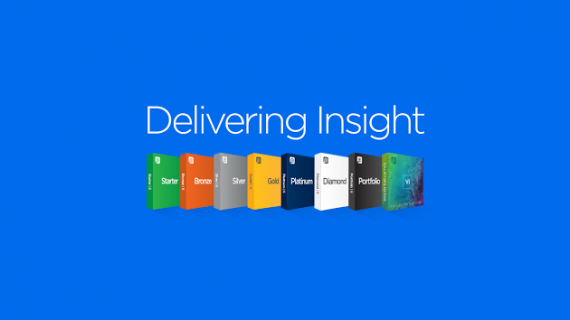

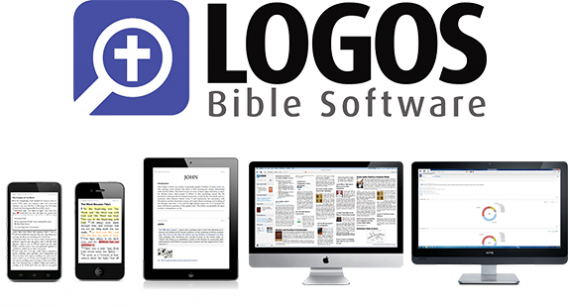

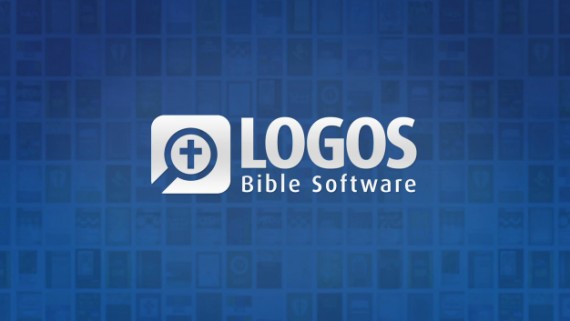

 Because we are finally giving up the illusion that Bible knowledge is the key to living the Christian life.
Because we are finally giving up the illusion that Bible knowledge is the key to living the Christian life. Ideally, it would be nice if everyone was a Bible expert AND they practiced the Bible, but nothing in this life is ideal And in my experience, it seems that Christians often prefer to put off loving other people because they fear they don’t know how, or won’t be able to answer a question properly, or won’t know how to deal with certain objections or issues that often come up. And so, in a good and godly quest to prepare for the act of loving and serving others, they just attend one seminar after another, one training session after another, one class after another, and many of them never get around to actually loving the other person.
Ideally, it would be nice if everyone was a Bible expert AND they practiced the Bible, but nothing in this life is ideal And in my experience, it seems that Christians often prefer to put off loving other people because they fear they don’t know how, or won’t be able to answer a question properly, or won’t know how to deal with certain objections or issues that often come up. And so, in a good and godly quest to prepare for the act of loving and serving others, they just attend one seminar after another, one training session after another, one class after another, and many of them never get around to actually loving the other person.

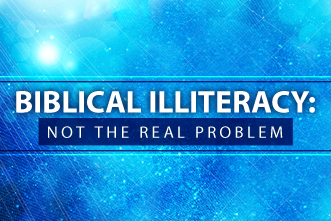 The problem is not a lack of biblical literacy; the problem is a lack of biblical living and loving, and to be honest, you don’t need to know much about the Bible in order to live and love like Jesus.
The problem is not a lack of biblical literacy; the problem is a lack of biblical living and loving, and to be honest, you don’t need to know much about the Bible in order to live and love like Jesus. 

 One example: Is God on the side of Hillary Clinton or Donald Trump? With either choice, you can find seminary-trained pastors and Bibles scholars who support one candidate or the other and use the Bible to do so, while accusing the other side of being biblically illiterate. I saw a post on Facebook the other day from a popular Northeastern Pastor who basically said, “How can any evangelical Christian support the racist, bigoted Donald Trump? Don’t you know what the Bible says?” And then he went on to quote some Bible verses which he thought should sway people to vote for Hillary.
One example: Is God on the side of Hillary Clinton or Donald Trump? With either choice, you can find seminary-trained pastors and Bibles scholars who support one candidate or the other and use the Bible to do so, while accusing the other side of being biblically illiterate. I saw a post on Facebook the other day from a popular Northeastern Pastor who basically said, “How can any evangelical Christian support the racist, bigoted Donald Trump? Don’t you know what the Bible says?” And then he went on to quote some Bible verses which he thought should sway people to vote for Hillary. Those questions are somewhat of a caricature of the real biblical literacy tests, but they’re not too far off.
Those questions are somewhat of a caricature of the real biblical literacy tests, but they’re not too far off. One big question I’ve been mulling over for the past five years or so is this “Is there such a thing as a SINGLE biblical world view, and even if so, is it a worldview that everyone should adopt? Is it the RIGHT worldview?” I am not sure the answer is “Yes” to either question.
One big question I’ve been mulling over for the past five years or so is this “Is there such a thing as a SINGLE biblical world view, and even if so, is it a worldview that everyone should adopt? Is it the RIGHT worldview?” I am not sure the answer is “Yes” to either question.

 Logos 7 also includes access to audio books, online courses, and thousands upon thousands of Bible reference tools and commentaries. I use the Gold Library because it has some of the best Bible study tools and commentaries, but of course, if really want to dive deep and get all the best tools that are available to you, you could go with the Platinum, Diamond, or even the Collector’s Edition.
Logos 7 also includes access to audio books, online courses, and thousands upon thousands of Bible reference tools and commentaries. I use the Gold Library because it has some of the best Bible study tools and commentaries, but of course, if really want to dive deep and get all the best tools that are available to you, you could go with the Platinum, Diamond, or even the Collector’s Edition.
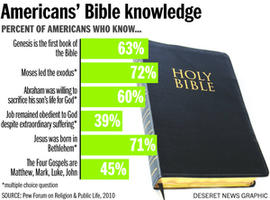 After laying out his case and
After laying out his case and 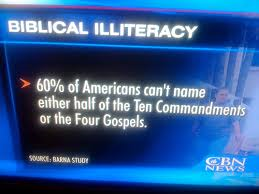 To see what I mean, consider these eight items again from a different perspective.
To see what I mean, consider these eight items again from a different perspective.
